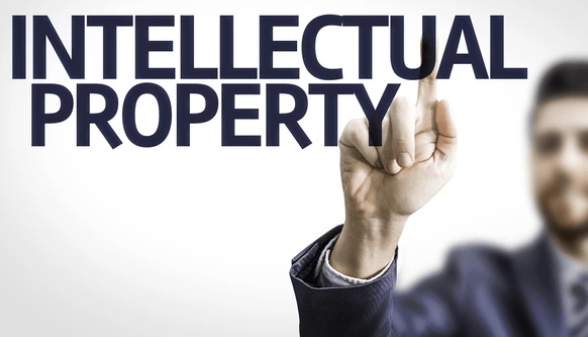The intellectual property (IP) licensing has gone a long way with the pace of technology…
Intellectual Property Rights in the Metaverse: Navigating the Virtual Frontier
Introduction
Before hunting into the intricacies of Intellectual Property Rights (IPR) in the metaverse, it is essential to know what the metaverse entails. Metaverse is a virtual reality space where users can interact with other users through a computer-generated environment. The term “metaverse” was originated by science fiction author Neal Stephenson in his 1992 novel “Snow Crash,” where human avatars and software agents interact in a three-dimensional virtual environment. In Metaverse, users can play, shop, learn, create, and interact with other users by blurring the line between the physical and virtual worlds.
In the metaverse and physical world, the notion of Intellectual Property Rights (IPR) has a murky image. The metaverse acted as a virtual boundary in this design for the future. IPR in the Metaverse is still a new idea and it is in the early stages, for a secure and safe environment we need a proper legal framework and strategies. This blog aims to discuss the challenges and opportunities of Intellectual Property Rights in the metaverse with prominent precedents.
Basics of IP in Metaverse
In simple words, Intellectual Property Rights refer to legal rights that protect the intangible property of a person that arises from a person’s intellect. These rights are crucial for the development of innovation and intellectual creation. This will give recognition to those persons and provide them with ownership rights for that intellectual activity.
When we talk about IPR in the metaverse various types of Intellectual Properties come into the picture, for example, copyrights, patents, and trademarks. This will help intellectual property owners to protect their properties without infringement in the virtual frontier.
Copyrights
Any original work created by any creator from an intellectual activity published in any form or medium will get automatic protection under copyright. Any literary work, text, music, videos, 3D paintings, images, software programs, avatar designs, art, or literature will get protection under copyright in the metaverse.
Patents
It is an exclusive right granted to any innovation that includes any process of doing something differently and effectively or a product or provides a new technical solution for an existing problem. Any physical device that can improve the virtual experience and blend the virtual world with the real world can get a patent, for example, headsets, cameras, haptic gloves, scanning sensors, AR and VR Technology, etc.
Trademarks
A Trademark can be a mark, symbol, design, color, combination of colors, shapes, etc. that identifies a product or a service that is distinguishable by a common man. As in the real world the logos, domain, and brand names of products and services are protected under Trademark, virtual goods, and services can be trademarked in the United States Patent and Trademark Office (USPTO).
The Judicial POV
There have been various representative cases that are widely known for utilizing third-party content about copyright without genuine permission or license. IP enforcement in the metaverse is complicated, as demonstrated by recent case rulings. For example, Mason Rothschild’s creation and selling of MetaBirkin NFTs, which Hermès alleged violated its trademark rights, was at issue in the case Hermès v. Mason Rothschild. The primary legal concerns included cybersquatting, dilution, and trademark infringement. Hermès claimed that Rothschild’s digital artworks infringed upon its legally protected intellectual property rights. Ruling in favor of Hermès, Mason Rothschild was held accountable for trademark infringement, dilution, and cybersquatting on all three counts by a federal jury in Manhattan on February 8, 2023. The jury gave Hermès a damages award of almost $133,000. This historic ruling created a precedent for companies looking to protect their trademarks in the metaverse and sparked debate about whether Non-Fungible Tokens (NFT) are protected by intellectual property laws.

Another prominent example of the legal proceedings initiated against 2K Games, the corporation behind the well-known video game series NBA 2K, by the Solid Oak Sketches which is the the owner of the copyright of several tattoos. The claimant argued that the video game’s digital avatars of the athletes infringed upon their copyright because they imitated several of their graphic motifs that were seen in the tattoos of prominent basketball players, such as Lebron James. Applying the implied license defense, the fair use defense (based on the artistic nature of video games), and the “de minimis use” defense (where so little of the protected work has been used that the infringing work is not substantially similar to the copyrighted work and is therefore none-infringing), the same court that decided the Humvee case also found in favor of the defendant.
AM General LLC, the manufacturer of the popular Humvee military vehicle, initiated an accusation against the publishers of the video game Call of Duty in 2017, claiming that the game’s depiction of the vehicle violated trademark laws by imitating its design. However, since Activision’s goal was to produce a video game that accurately simulated modern warfare, the United States District Court for the Southern District of New York found that the company’s use of the vehicle and trademarks had artistic value and satisfied the requirements of the so-called Rogers test.
On the other hand, courts have found in some cases that video game developers have gone too far in their use of third-party intellectual property rights. This means that these issues must be investigated on a case-by-case basis.
Challenges and Opportunities
As this bubble of Intellectual Property in the metaverse grows, the complexities and legal challenges for protecting IPR in an unknown world will also increase. It will be more difficult to cater to all the theft and infringement in comparison to the real world. It will include unclarity of jurisdiction, true identification of the owner, and enforcement of Intellectual Property Rights, as users can create a virtual representation of a real object that they do not own.
There are special opportunities for inventiveness and interaction within the intellectual property realm in this metaverse, despite the many problems it faces. Artists and rights owners can regain control over their digital assets through technology and make money from their creative works in ways never seen before. That may include decentralized content creation platforms, IP registries on a blockchain, and smart contract licensing systems.
Conclusion
Pixels to patents, this navigation of the virtual frontier of IPR in the metaverse, creators deserve their exclusive rights on intangible properties in both the virtual and real world. Despite the continuing rise of challenges such as questionable jurisdiction and infringement of third-party content, new cases highlight the importance of aggressive enforcement and thorough evaluation of digital assets. However, these hurdles present novel prospects for imagination and collaboration through modern technologies like smart contracts and blockchain. By embracing legal precedents, technology, and collaborative efforts innovators, designers, and creators in the virtual world can harness their Intellectual Property Rights to their full potential.
Author: Esha Jaiswal, in case of any queries please contact/write back to us via email to chhavi@khuranaandkhurana.com or at Khurana & Khurana, Advocates and IP Attorney.
References
- The Metaverse and Intellectual Property, The Metaverse and Intellectual Property (WIPO.int)
- Brij B. Gupta, Akshat Gaurav, Varsha Arya & Wadee Alhalabi, The evolution of intellectual property rights in metaverse-based Industry 4.0 paradigms, (February 05, 2024) The evolution of intellectual property rights in metaverse-based Industry 4.0 paradigms | International Entrepreneurship and Management Journal (springer.com)
- Frank L. Gerratana, Amrita Ganguly, Intellectual Property for Metaverse, Intellectual Property for the Metaverse | Mintz
- FM Contributors, Legal Challenges in the Metaverse: Navigating Intellectual Property Rights, (July 25, 2023), Legal Challenges in the Metaverse: Navigating Intellectual Property Rights (financemagnates.com)
- Anagha SS and Hardi Satta, India: Intellectual Property on The Metaverse, (April 18, 2023), Intellectual Property In The Metaverse – Trademark – India (mondaq.com)



